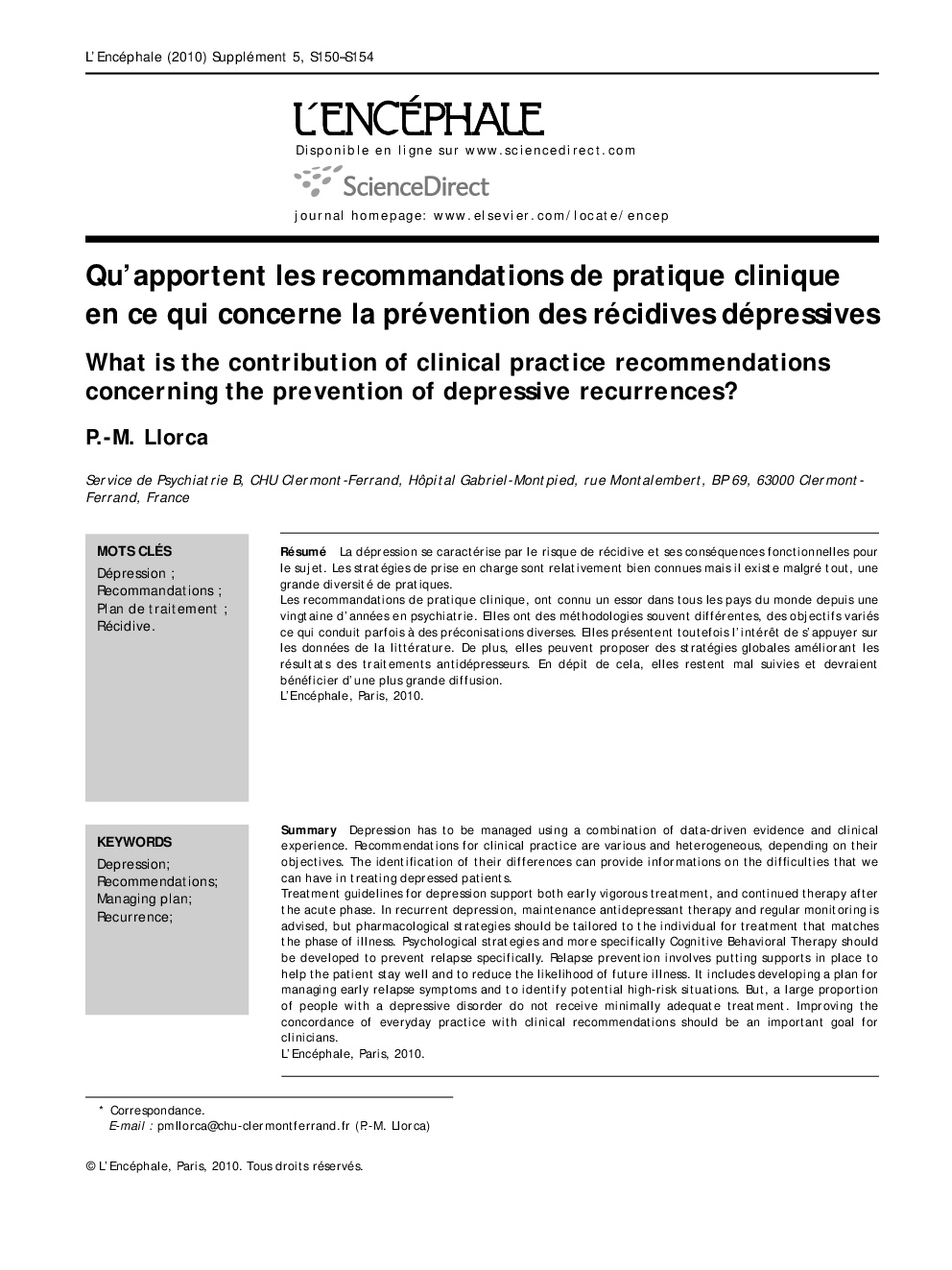| Article ID | Journal | Published Year | Pages | File Type |
|---|---|---|---|---|
| 4182740 | L'Encéphale | 2010 | 5 Pages |
Abstract
Treatment guidelines for depression support both early vigorous treatment, and continued therapy after the acute phase. In recurrent depression, maintenance antidepressant therapy and regular monitoring is advised, but pharmacological strategies should be tailored to the individual for treatment that matches the phase of illness. Psychological strategies and more specifically Cognitive Behavioral Therapy should be developed to prevent relapse specifically. Relapse prevention involves putting supports in place to help the patient stay well and to reduce the likelihood of future illness. It includes developing a plan for managing early relapse symptoms and to identify potential high-risk situations. But, a large proportion of people with a depressive disorder do not receive minimally adequate treatment. Improving the concordance of everyday practice with clinical recommendations should be an important goal for clinicians.
Related Topics
Health Sciences
Medicine and Dentistry
Psychiatry and Mental Health
Authors
P.-M. Llorca,
